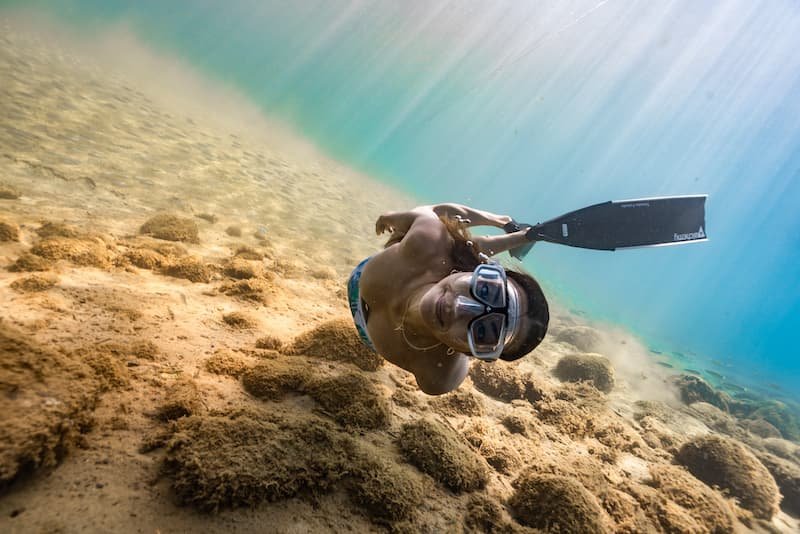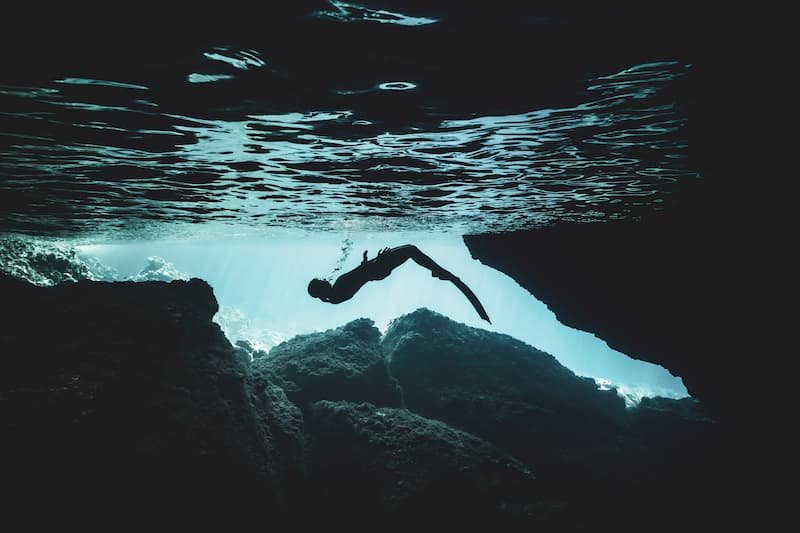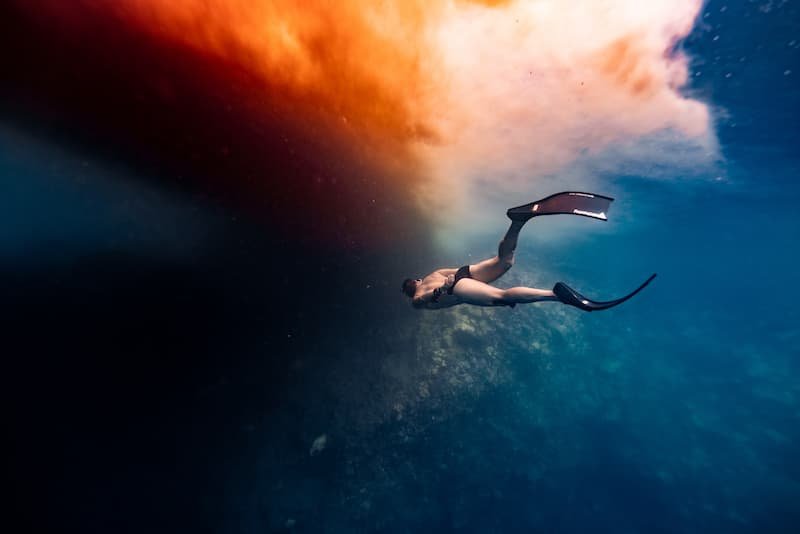
 Nick Pelios
Freediver, Creator
Nick Pelios
Freediver, Creator

 Nick Pelios
Freediver, Creator
Nick Pelios
Freediver, Creator
As a passionate freediver, I have delved into the deep blue countless times, captivated by the serenity and beauty beneath the waves. However, during one fateful solo snorkeling session, I encountered a life-threatening situation that served as a stark reminder of the importance of never diving alone.
On a calm and sunny day, I found myself eager to indulge in a quick snorkeling session. The crystal-clear waters beckoned, inviting me to explore their hidden treasures. Equipped with my snorkel gear, I embarked on what I initially intended to be a casual adventure. Little did I know that this seemingly innocuous decision would lead me to an unexpected encounter at a depth that required more caution. While snorkeling along the surface, my eyes caught sight of a magnificent grouper lurking in the distance. Its colorful scales glistened under the rays of sunlight, and its mere presence stirred a sense of curiosity within me. Determined to get a closer look, I made the impulsive decision to dive down to the grouper's hideaway, a small underwater cave approximately 15 meters below.

As an experienced freediver, I was confident in my abilities and underestimated the potential risks of diving alone. Freediving, though thrilling and captivating, can be unforgiving if proper precautions are not taken. In my quest to observe the grouper, I had disregarded the fundamental rule of never diving alone, a decision that would soon expose me to danger. Descending into the depths, my heart raced with excitement as the grouper's lair drew nearer. However, at around 12 meters, I began to experience an uncomfortable feeling of pressure in my chest. Ignoring the subtle warning signs, I persisted, oblivious to the impending danger that awaited me. I reached the entrance of the cave, glimpsing the grouper's elusive figure just a few meters away.

As I broke through the water's surface, basking in the euphoria of a successful encounter with the majestic grouper, an unexpected wave of panic surged within me, threatening to shatter the tranquility I had just experienced. With each gasp for air, my desperate lungs struggled to replenish the vital oxygen that had been depleted during my descent. This sudden upheaval was no ordinary discomfort; it was a frightening manifestation of Loss of Motor Control (LMC), a perilous condition that can occur during freediving. LMC is a phenomenon that arises when the body's oxygen levels reach critically low levels. As a result, the muscles become deprived of the necessary oxygen supply, leading to weakness, incoordination, and ultimately, loss of control. This loss of motor function is not only disconcerting but can also be life-threatening if not addressed promptly.
Fortunately, my extensive training and experience played a crucial role in averting the worst possible outcome. Years of disciplined practice had ingrained within me the importance of remaining calm under pressure. In that critical moment, I summoned all my mental fortitude to stay composed and focused on my training. Slowly and deliberately, I regulated my breathing, consciously inhaling and exhaling to optimize oxygen intake. Through sheer determination, I was able to restore a semblance of control to my faltering muscles.
Reflecting upon this harrowing experience, I am reminded of the paramount importance of never underestimating the risks associated with solo freediving. No matter how skilled or experienced one may be, the presence of a dive buddy can be the difference between life and death. A trusted companion can monitor your well-being, offer assistance in times of need, and provide an immediate response in case of emergencies, including LMC. By adhering to the principles of the buddy system, we forge a safety net that safeguards us during our underwater explorations. Together, we can share the wonders of the deep, cherishing the beauty of marine life while ensuring our collective security. The lessons learned from my encounter with LMC have forever etched in my mind the importance of never diving alone, a choice that can mean the difference between a treasured memory and a tragic end.

While the events described above were a work of imagination, it is crucial to recognize that they depict a realistic and potential scenario that could unfold for individuals who choose to dive alone. Loss of Motor Control (LMC) is a genuine risk that freedivers face without the presence of a trusted dive buddy. The purpose of this fictional tale is to underscore the importance of prioritizing safety and never underestimate the potential dangers of solo freediving. It serves as a stark reminder that accidents can happen, and without the necessary precautions, the outcome could be disastrous. Therefore, it is essential to treat this cautionary tale as a reminder to always dive responsibly, with proper training, equipment, and the companionship of a trusted dive buddy.